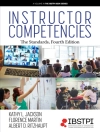For better or worse, E.P. Thompson’s monumental book The Making of the English Working Class has played an essential role in shaping the intellectual lives of generations of readers since its original publication in 1963. This collected volume explores the complex impact of Thompson’s book, both as an intellectual project and material object, relating it to the social and cultural history of the book form itself—an enduring artifact of English history.
Tabela de Conteúdo
Preface
Antoinette Burton and Stephanie Fortado
Introduction: Radical Book History: E. P. Thompson and The Making of the English Working Class
Antoinette Burton
Chapter 1. Making and Unmaking the Working Class: E. P. Thompson and the “New Labor History” in the United States
James R. Barrett
Chapter 2. History from Down Under: E. P. Thompson’s The Making of the English Working Class and Australia
Ann Curthoys
Chapter 3. The Ecology of Class: Revolution, Weaponized Nature, and the Making of Campesino Consciousness
Christopher R. Boyer
Chapter 4. Worst Conceivable Form: Race, Global Capital, and The Making of the English Working Class
Zach Sell
Chapter 5. Race, Antiracism, and the Place of Blackness in the Making and Remaking of the English Working Class
Caroline Bressey
Chapter 6. E. P. Thompson and the Kitchen Sink or Feeling from Below, c. 1963
Lara Kriegel
Chapter 7. South African Remains: E. P. Thompson, Biko, and the Limits of The Making of the English Working Class
Isabel Hofmeyr
Chapter 8. Talking History: E. P. Thompson, C. L. R. James, and the Afterlives of Internationalism
Utathya Chattopadhyaya
Sobre o autor
Stephanie Fortado is a lecturer in the Labor Education Program at the University of Illinois Champagne-Urbana, and former executive director of the Illinois Labor History Society.












